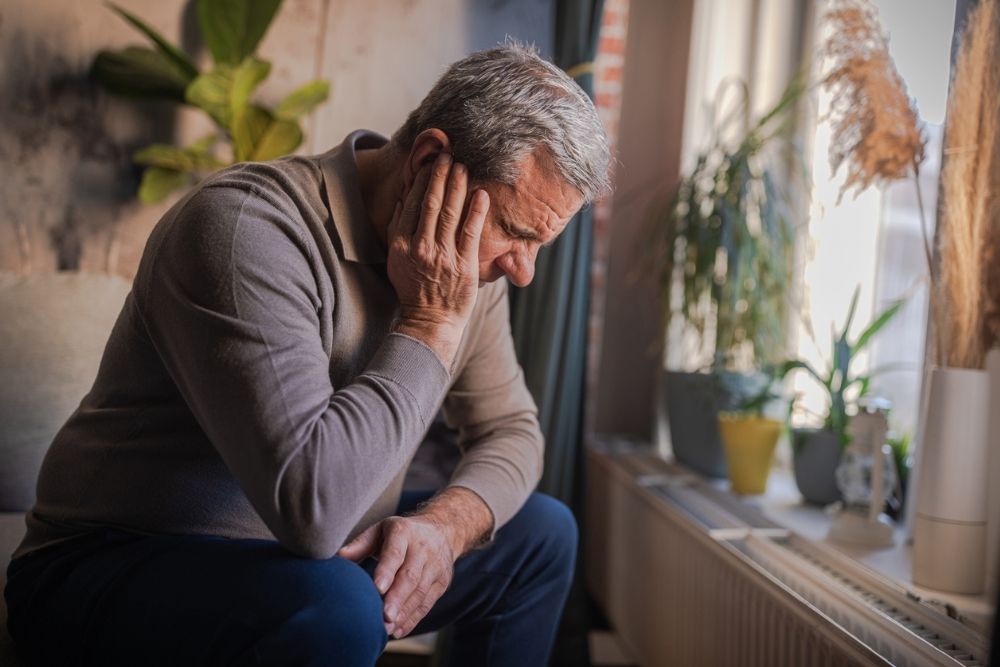If you’ve ever felt like the weight of depression was too heavy to carry, you may understand why so many people turn to drugs or alcohol to cope. Depression can feel isolating, exhausting, and overwhelming. Sometimes, the temporary relief substances provide feels like the only way to escape the sadness, numb the pain, or quiet the racing thoughts. But as you may already know, that relief doesn’t last—and often, it creates new struggles that make depression even harder to manage.
Why Depression and Substance Use Often Go Hand-in-Hand
Depression is more than just feeling sad. It can affect your energy, sleep, appetite, motivation, and even the way you see yourself. When these symptoms go untreated, many people look for ways to self-medicate. Drugs or alcohol can seem like a quick fix—they may lift your mood for a short while, make you feel more relaxed, or help you escape difficult emotions.
But here’s the truth. Substances don’t solve depression, but, in fact, they usually make it worse.
- Alcohol is a depressant. While it may make you feel calmer in the moment, it can intensify feelings of sadness and hopelessness once the effects wear off.
- Drugs can interfere with brain chemistry. Substances like opioids, cocaine, or marijuana may alter your mood temporarily, but long-term use can disrupt the brain’s natural ability to regulate emotions.
- The cycle becomes hard to break. You may drink or use drugs to cope with depression, but the side effects—hangovers, withdrawal symptoms, guilt, or strained relationships—add to your stress, creating an endless loop.
A report in the National Library of Medicine (NLM) shows that people with mood disorders like depression are about twice as likely to also struggle with substance use disorders, and the reverse is true as well. This combination is called a co-occurring disorder or dual diagnosis.
Signs You May Be Struggling with Both
Sometimes it’s not easy to tell where depression ends and substance use begins. You might wonder if your mood is low because of the substances you’re using—or if you’re using substances because your mood is low. In many cases, the answer is both.
Some common signs of co-occurring depression and substance use include:
- Using alcohol or drugs to escape sadness, stress, or hopelessness
- Feeling worse once the effects of substances wear off
- Losing interest in activities you once enjoyed
- Struggling to keep up with work, school, or family responsibilities
- Withdrawing from friends and loved ones
- Having frequent thoughts of guilt, worthlessness, or despair
- Experiencing cravings or withdrawal symptoms when you don’t use substances
If you recognize yourself in some of these signs, know that you are not alone and that help is available.
Why Professional Help Matters
Many people with depression don’t recognize the symptoms or may feel ashamed to seek help. Instead, they self-medicate, hoping to manage things on their own. But untreated depression and ongoing substance use often reinforce one another, creating more pain over time.
Professional treatment can break this cycle. Here’s what makes treatment so important:
- A thorough evaluation. Depression and substance use affect everyone differently. Our medical team carefully evaluates your unique situation so we can understand what you’re going through.
- Individualized treatment. No two recovery journeys look the same. Your plan may include therapy, medication management, or group support designed specifically for your needs.
- Addressing both conditions together. Treating depression without addressing substance use (or vice versa) often leads to relapse.
- Learning healthier coping strategies. Instead of turning to substances, you’ll discover tools like therapy, mindfulness, and community support to manage depression in healthier ways.
Building Healthier Coping Tools
Recovery is not just about removing substances—it’s about building new ways to cope with life’s challenges. With professional support, you can:
- Recognize triggers. Learn what situations, emotions, or thoughts lead you to use substances.
- Build resilience. Practice healthy habits like exercise, nutrition, and consistent sleep to improve mood.
- Find support. Group therapy or support groups remind you that you’re not alone in your struggles.
- Develop self-compassion. Instead of blaming yourself for your struggles, you’ll learn to treat yourself with patience and kindness, which helps reduce depression and improve recovery outcomes.
Living with depression and substance use can feel overwhelming, but you don’t have to fight this battle on your own. The connection between the two is real—and it’s why professional, compassionate treatment is so important.
If you’re ready to take the first step, Peak Behavioral Health in Santa Teresa, New Mexico, is here to walk beside you. Healing is possible—and it begins with reaching out to us today.





